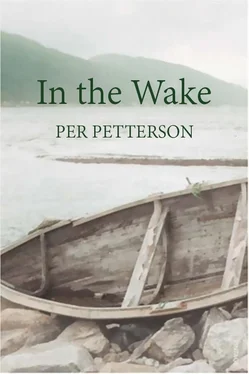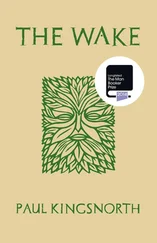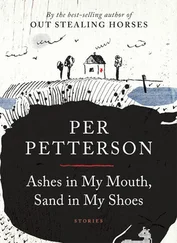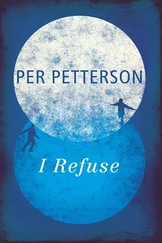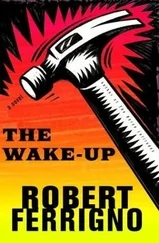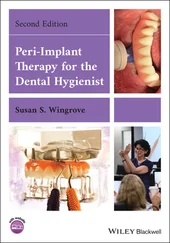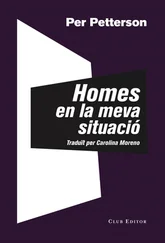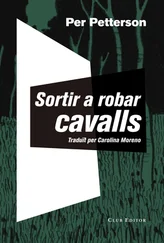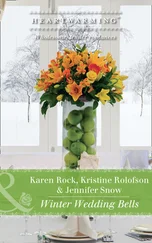I drive through Kirkebygda where the writer Jens Bjørneboe lived and wrote The Dream and the Wheel , across the little river beyond the schoolhouse, past the road to the manor house where Ragnhild Jølsen of that book was born, and just after that I hit the sharp curve, and to keep up the rhythm I do not brake. This makes the car slide to the left, and as I keep a firm grip on the wheel and refuse to change course, the rear end wags and lurches, and I end up almost beam on across the road, and had there been a car coming the other way that would have meant trouble. But there isn’t. I hold my breath and force the car into position, tyres screeching, and the snow turns into rain, the mercury’s rising, spring must be on its way, I can feel it in my bones. Then the road straightens out along a flat stretch, and I cut the speed and lay the backs of both hands against the wheel so my fingers are free to roll a cigarette while I keep driving and peer out into the rain. The first drag tastes good, but the next one makes me feel so sick and dizzy that I stop the car at once, open the door and stagger out on to the verge, and stand there throwing up. There is not much in my stomach, but cramps take a violent hold and I stay there bent over the ditch in the rain bellowing like a cow and cannot stop.
“Holy shit,” I say aloud in one of the intervals, “fucking misery.” Tears pour down as I brace knees and feel the rain running down my neck. The fit finally passes, I straighten my back and see there is a house on a lawn just on the other side of the ditch. Behind it there is thick forest, almost flattened by something I could have written “was like steaming rain”. On the first floor a small boy stands with his nose to the windowpane, mouth half open, staring at me with eyes almost out of his head. For a few seconds we just look at each other, he from the circle and I from the stage, and then I place my right hand on my stomach, hold the left one to the side and make a deep bow with the water streaming from my hair.
“Da capo,” I mumble, stick my finger down my throat and vomit again. My stomach contracts, I cough and the pain in my side is suddenly back, oh, how welcome, old friend. My balance falters, but I jerk myself into a standing position, and now the boy in the upstairs window has both hands to his temples and his lips clenched into a line. I wipe my mouth and retreat until I feel the car against my back, raise my hand and start to wave and go on doing that until I can see he cannot help himself and waves back, and then his mother emerges from the dark room behind him. She bends forward to find out who he is waving to, and then I go around the car and get in.
When the house is out of sight I do not drive much further, just turn on to a forest track and stop a few metres along and lean back in my seat with eyes closed until my stomach feels less upset. Then I sleep for a quarter of an hour, and when I wake up I’m feeling better. It is something new in my life, this being able to fall asleep anywhere at any time. I do not know what to think about that.
I start the engine and reverse on to the road and drive through the forest and out on the other side along a field where two horses stand in the rain. One is brown, the other is black, and the sun breaks through the clouds while the rain keeps falling on the forest and the field and the farm on the hill, all seasons are queuing in the same line while everything slowly slides from grey white to dirty yellow. The two horses glitter in the slanting light as the shining rain falls mercilessly upon them, I can see each single drop as they strike like icy cold pellets and how they spurt up again, and the horses stand motionless, their heads down and their muzzles together close up to the fence, abandoned by all, being only horses with the rain coming down and down upon them, and they share no hope in this world. The sight of them totally unhinges me, I clench my jaw and I clench my fist and beat at the steering wheel, and my foot hits the gas, and all this merely because I haven’t had anything to eat. But then I think: it would all be different if I had owned a horse.
There used to be a shop here I know has closed down, because I have driven this way several times, and then it has been shut. But when I come round the curve it is open, with a new sign above the door. No doubt an idealist from Oslo wants to run a country store in a godforsaken place, far from the madding crowd, but is it far enough? I don’t think so. Anyway, it is open now, and I stop the car on the gravel outside, go in the door which has a sheep-bell at the top and is supposed to ring as in the good old days, and a young woman comes out of the room at the back. She smiles expectantly. No doubt, I am the first customer today, and all I want is some brown bread and a litre of milk. I put a Kvikk Lunsj chocolate bar on the counter to give my purchase more substance. She is wearing a huge apron with big stains of what looks like clay. Through the half-open door behind her I can see not an office but a pottery workshop, and when I turn round I see one end of the shop is full of bowls and vases and candlesticks and cups. All the same blue colour. I think the colour is pretty, and I think she is pretty. I go over, pick up a cup and weigh it in my hand, but there is no price tag on it, so I ask: “Are you expensive?”
“That one is a hundred kroner,” she says, and her voice breaks slightly and she clears her throat as if it were a long time since she last spoke. It seems a lot, a hundred kroner for a cup, but then I don’t know much about pottery, it may not be so costly. It is suddenly such a beautiful blue that I could not think of leaving without it.
“That’s not so bad,” I say, carrying the cup to the counter and putting it down in front of her. “I’ll have it.”
And she wraps it in tissue paper and enters the items in the till, then puts everything into a plastic bag and she looks so pretty in her apron doing this that I would not mind seeing her wearing just that apron and nothing else, and as I am thinking this she blushes. She is no mind reader so it must be the look on my face that makes her blush, and I look away, blushing myself, thinking: where on earth did that come from? But now it is there, and it may have something to do with Mrs Grinde, and then I think of her for the first time since I left her flat and how I could feel her and I blush again and look down at my hands as I get out my wallet and put the money on the counter. One hundred and twenty-seven kroner, ping. I would have liked to have stayed there to look at her a bit longer, watch her do things and maybe talk about pottery, but it is impossible now, and the scent of fresh brown bread seeps up from the bag and right into my face and makes my stomach feel really hollow, and I cannot very well go and buy two cups.
“Come again,” she says as I am on my way out the door, and I turn in surprise and say: “Thanks.”
But it is not very likely — that I will be back, or that she will be here when I do. On my way to the car I glance through the window, and she is still standing there behind the counter not looking at me or at anything at all, just straight ahead.
There is a slight breeze, but the rain has stopped. I am blinded by the low sun; it looks as if it is steaming, and the fields are steaming and the woods are, behind the shop. The gravel glitters, and when I start up there’s a lump in my throat, but before I’m round the curve I tear off the first bite of bread.
WHILE MY FATHER was alive I knew nothing about the photograph he had in the breast pocket of his suit the day he got married. Not until several years after his death did I hear about it from Solgunn, my aunt, on the telephone. She and Uncle Trond live in Stavanger. That is where she comes from. We have a talk from time to time. Not often, but more often than before, and it is usually one of them who calls. I am not so good at that, I never was.
Читать дальше
